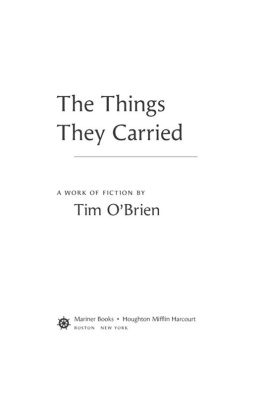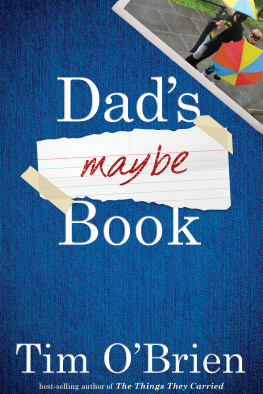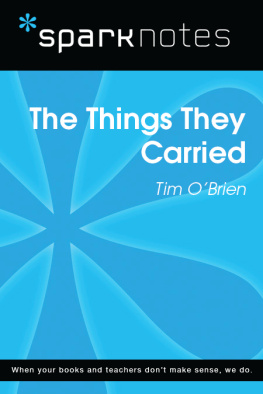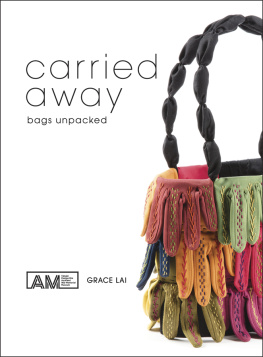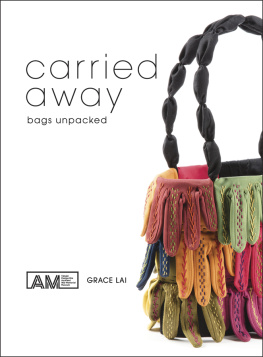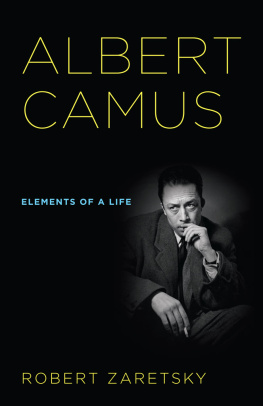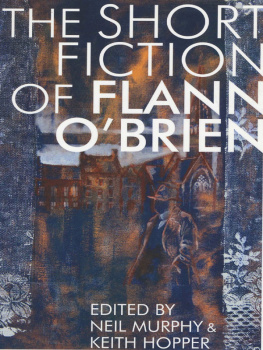Mariner Books Houghton Mifflin Harcourt
BOSTON NEW YORK
First Mariner Books edition 2009
Copyright 1990 by Tim O'Brien
All rights reserved
For information about permission to reproduce selections from this book,
write to Permissions, Houghton Mifflin Harcourt Publishing Company,
215 Park Avenue South, New York, New York 10003.
www.hmhbooks.com
First published in 1990 by Houghton Mifflin
Library of Congress Cataloging-in-Publication Data is available.
ISBN 978-0-618-70641-9
Printed in the United States of America
DOC 10 9 8 7 6 5 4 3 2 1
Of these stories, five first appeared in Esquire: "The Things They Carried,"
"How to Tell a True War Story," "Sweetheart of the Song Tra Bong," "The
Ghost Soldiers," and "The Lives of the Dead." "Speaking of Courage" was
first published
in The Massachusetts Review, then later, in a revised version,
in Granta. "In the Field" was first published in Gentleman's Quarterly. "Style,"
"Spin," and "The Man I Killed" were first published, in different form, in The
Quarterly. "The Things They Carried" appeared in The Best American Short
Stories 1987. "Speaking of Courage" and "The Ghost Soldiers" appeared in
Prize Stories: The O. Henry Awards (1978 and 1982). "On the Rainy River"
first appeared in Playboy. The author wishes to thank the editors of those
publications and to express gratitude for support received from the National
Endowment for the Arts.
This book is lovingly dedicated to the men of
Alpha Company, and in particular to Jimmy Cross,
Norman Bowker, Rat Kiley, Mitchell Sanders,
Henry Dobbins, and Kiowa.
Acknowledgments
My thanks to Erik Hansen, Rust Hills,
Camille Hykes, Seymour Lawrence, Andy McKillop,
Ivan Nabokov, Les Ramirez, and, above all,
to Ann O'Brien.
Contents
The Things They Carried
Love
Spin
On the Rainy River
Enemies
Friends
How to Tell a True War Story
The Dentist
Sweetheart of the Song Tra Bong
Stockings
Church
The Man I Killed
Ambush
Style
Notes
In the Field
Good Form
Field Trip
The Ghost Soldiers
Night Life
The Lives of the Dead
This book is essentially different from any other that has been published concerning the "late war" or any of its incidents. Those who have had any such experience as the author will see its truthfulness at once, and to all other readers it is commended as a statement of actual things by one who experienced them to the fullest.
John Ransom's Andersonville Diary
The Things They Carried
First Lieutenant Jimmy Cross carried letters from a girl named Martha, a junior at Mount Sebastian College in New Jersey. They were not love letters, but Lieutenant Cross was hoping, so he kept them folded in plastic at the bottom of his rucksack. In the late afternoon, after a day's march, he would dig his foxhole, wash his hands under a canteen, unwrap the letters, hold them with the tips of his fingers, and spend the last hour of light pretending. He would imagine romantic camping trips into the White Mountains in New Hampshire. He would sometimes taste the envelope flaps, knowing her tongue had been there. More than anything, he wanted Martha to love him as he loved her, but the letters were mostly chatty, elusive on the matter of love. She was a virgin, he was almost sure. She was an English major at Mount Sebastian, and she wrote beautifully about her professors and roommates and midterm exams, about her respect for Chaucer and her great affection for Virginia Woolf. She often quoted lines of poetry; she never mentioned the war, except to say, Jimmy, take care of yourself. The letters weighed 4 ounces. They were signed Love, Martha, but Lieutenant Cross understood that Love was only a way of signing and did not mean what he sometimes pretended it meant. At dusk, he would carefully return the letters to his rucksack. Slowly, a bit distracted, he would get up and move among his men, checking the perimeter, then at full dark he would return to his hole and watch the night and wonder if Martha was a virgin.
The things they carried were largely determined by necessity. Among the necessities or near-necessities were P-38 can openers, pocket knives, heat tabs, wristwatches, dog tags, mosquito repellent, chewing gum, candy, cigarettes, salt tablets, packets of Kool-Aid, lighters, matches, sewing kits, Military Payment Certificates, C rations, and two or three canteens of water. Together, these items weighed between 12 and 18 pounds, depending upon a man's habits or rate of metabolism. Henry Dobbins, who was a big man, carried extra rations; he was especially fond of canned peaches in heavy syrup over pound cake. Dave Jensen, who practiced field hygiene, carried a toothbrush, dental floss, and several hotel-sized bars of soap he'd stolen on R&R in Sydney, Australia. Ted Lavender, who was scared, carried tranquilizers until he was shot in the head outside the village of Than Khe in mid-April. By necessity, and because it was SOP, they all carried steel helmets that weighed 5 pounds including the liner and camouflage cover. They carried the standard fatigue jackets and trousers. Very few carried underwear. On their feet they carried jungle boots2.1 poundsand Dave Jensen carried three pairs of socks and a can of Dr. Scholl's foot powder as a precaution against trench foot. Until he was shot, Ted Lavender carried 6 or 7 ounces of premium dope, which for him was a necessity. Mitchell Sanders, the RTO, carried condoms. Norman Bowker carried a diary. Rat Kiley carried comic books. Kiowa, a devout Baptist, carried an illustrated New Testament that had been presented to him by his father, who taught Sunday school in Oklahoma City, Oklahoma. As a hedge against bad times, however, Kiowa also carried his grandmother's distrust of the white man, his grandfather's old hunting hatchet. Necessity dictated. Because the land was mined and booby-trapped, it was SOP for each man to carry a steel-centered, nylon-covered flak jacket, which weighed 6.7 pounds, but which on hot days seemed much heavier. Because you could die so quickly, each man carried at least one large compress bandage, usually in the helmet band for easy access. Because the nights were cold, and because the monsoons were wet, each carried a green plastic poncho that could be used as a raincoat or groundsheet or makeshift tent. With its quilted liner, the poncho weighed almost 2 pounds, but it was worth every ounce. In April, for instance, when Ted Lavender was shot, they used his poncho to wrap him up, then to carry him across the paddy, then to lift him into the chopper that took him away.
They were called legs or grunts.
To carry something was to hump it, as when Lieutenant Jimmy Cross humped his love for Martha up the hills and through the swamps. In its intransitive form, to hump meant to walk, or to march, but it implied burdens far beyond the intransitive.
Almost everyone humped photographs. In his wallet, Lieutenant Cross carried two photographs of Martha. The first was a Kodacolor snapshot signed Love, though he knew better. She stood against a brick wall. Her eyes were gray and neutral, her lips slightly open as she stared straight-on at the camera. At night, sometimes, Lieutenant Cross wondered who had taken the picture, because he knew she had boyfriends, because he loved her so much, and because he could see the shadow of the picture-taker spreading out against the brick wall. The second photograph had been clipped from the 1968 Mount Sebastian yearbook. It was an action shotwomen's volleyballand Martha was bent horizontal to the floor, reaching, the palms of her hands in sharp focus, the tongue taut, the expression frank and competitive. There was no visible sweat. She wore white gym shorts. Her legs, he thought, were almost certainly the legs of a virgin, dry and without hair, the left knee cocked and carrying her entire weight, which was just over 117 pounds. Lieutenant Cross remembered touching that left knee. A dark theater, he remembered, and the movie was
Next page
